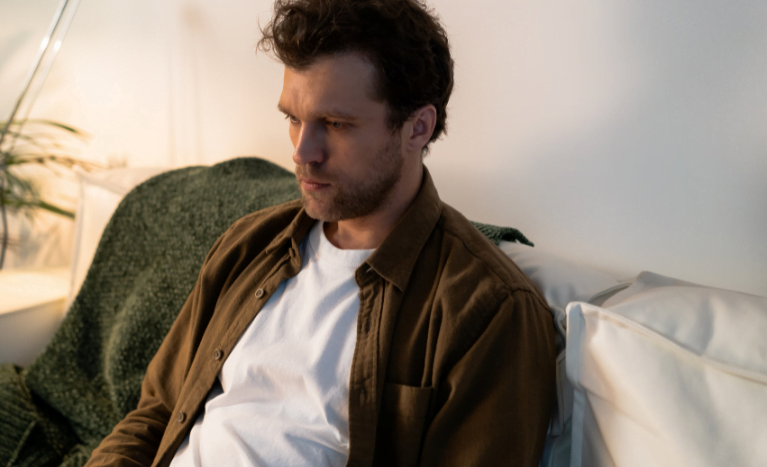No matter what you do, you can’t seem to stop thinking about it; why doesn’t your partner want to agree to an open relationship when there are so many benefits to being in one?
And how can you change his mind?
Should you even try changing his mind?
If you want an open relationship and he doesn’t, don’t worry; people in open relationships likely went through the same rough patch.
So, you’re not alone.
Here are some things you can do if you want to see other people and your partner isn’t 100% on board.
What Is An Open Relationship?
First of all, what is it, exactly?
The exact definition and rules vary among couples, but open relationships generally mean “consensual non-monogamous relationships where a primary couple is open to sexual contact with others.”
This could involve individuals exploring others on their own or the couple exploring together with others — and anything in between.
If the couple agrees that one or both can be intimate with others, it’s likely an open relationship.
These relationships have specific rules and expectations for them to work, like certain people being off-limits, boundaries for emotions and physical contact, and more.
These rules are typically set at the start.
This isn’t the same as polyamory, where someone is in multiple romantic relationships simultaneously.
Polyamory involves romantic feelings, while open relationships can be just about sex without emotional attachment.
There are many benefits to open relationships.
But, what if you’re the only one who sees these benefits?
Here are some tips on what to do if you want an open relationship but your partner doesn’t want it:
1. Remember That It’s Okay To Want An Open Relationship
Something important to remember from the beginning is that you’re not a bad person for wanting an open relationship, and wanting this isn’t the same as wanting to cheat on your partner.
To start with, it’s unrealistic to expect that your partner is going to meet every single one of your needs. Expecting this is a cultural construct that’s unrealistic and nearly unachievable.
You’re not a bad partner or a bad person for admitting that your partner isn’t fulfilling all of your needs.
You just want the healthy polygamous relationship that other people seem to have. Maybe you personally know someone whose open relationship worked for them or you’ve seen stories online of successful open relationships and you realized that that’s something you want or need.
In some cases, you might even feel like it’s an inherent part of you, like your sexual orientation. You know if you’re straight or gay and you know that that’s a part of you, and it might be the same way with knowing if you’re meant to be in a polygamous relationship.
Contrary to the belief that people in open relationships are unhappy with their monogamous relationships or with their partner, a study has found that adults in open relationships reported being happier, healthier, and more sexually active. This just goes to show that you’re not trying to sabotage your relationship; you’re actually trying to make it healthier for the two of you.
But — and it’s a big “but” — you’ll only reap the benefits of an open relationship if you and your partner successfully pull it off.
As you can imagine, that isn’t always the case for all attempts at an open relationship.
If you decide that you want an open relationship, you’ll also have to accept that it isn’t going to be smooth sailing. Several things can rock the boat, like the fact that not everyone believes in open relationships.
Since we were young, we’ve been socialized to think that monogamy is the norm and anything else is cheating.
Studies have found that in the minds of most people, consensual nonmonogamy is far inferior to monogamy.
If your partner believes in traditional, monogamous love, it’s not their fault. But it’s also not yours for wanting something else.
The bottom line is that while it may not seem like it at first because of societal pushback, you have valid needs and you deserve to have your partner at least hear you out.
2. Evaluate Your Reasons For Wanting An Open Relationship
If you want an open relationship and he doesn’t, one thing you need to do is seriously think about why you want one.
If you’re going to defend your choice, you’re going to have to root your arguments for it for these reasons. It’s important to properly communicate your reasons to your partner because otherwise, they won’t understand where you’re coming from and might not take it well.
Are you trying to explore your sexuality?
It’s a common reason why people go for open relationships; if you want to explore that part of yourself but you can’t with your current partner (like, for example, if you’re bisexual and your partner is straight), you might want the satisfaction of sexual experiences with other people.
Whether you’re just starting to be curious about your sexuality or you’ve already identified your sexual orientation for sure, it’s normal to be attracted to people who aren’t your partner.
Do you want an open relationship because of differences that you have with your partner, like emotional attachment or a mismatch in libido?
If your answer is yes, asking for an open relationship can be a healthy way of filling up the gaps without jeopardizing your relationship because everything is consensual.
Maybe you feel like your partner isn’t as vocal about his love for you or you’ve noticed that you have different ideas of what good sex is. Instead of doing something destructive like cheating, figure out if this is the real reason why you want an open relationship.
On the other hand, something to watch out for is if you’re trying to save a failing relationship by deciding to open it.
While it might be true that opening your relationship can strengthen already strong relationships, it won’t save one between two completely incompatible people.
If seeing or having sex with other people is a band-aid solution for a deeper conflict between you two, it might be a bad idea to try to salvage the relationship this way. Nonmonogamy can exacerbate preexisting personal issues along with issues with the relationship itself.
What about this: are you hoping to meet someone else entirely because you want to leave your partner?
While it’s a valid reason for wanting an open relationship, your partner might not think the same way. It might contribute to why he doesn’t want to open the relationship because he’s probably thinking, “why would I let her go around to meet someone else so she can leave me?”
3. Openly Communicate With Your Partner About It
He’ll never agree to something he doesn’t fully understand, so if this is really important to you, you have to commit to communicating with him as clearly as you can. After all, the success of an open relationship depends on solid communication between the two people.
Tell him why you want it. It might be uncomfortable to talk about because you might hurt his feelings at first, but it’s necessary if you want any hope of him agreeing to open the relationship.
Make it clear to him that you’re doing this because you want to make sure both of your needs are met without breaking up — not because you don’t love him anymore.
You’ll need to discuss the expectations for both of you if you do end up opening the relationship.
He’ll want to know what he can expect if he agrees so he can decide. He wants to see if he’s ready for what’ll happen if you start seeing other people, romantically or sexually. Basically, he’ll want to know how the relationship will change.
If you like to support your arguments with others’ experiences, you could tell him that studies have found that people in open relationships experience positive changes in sexual satisfaction.
If he’s said he’s not keen on the idea, ask him to explicitly tell you why so you can discuss it.
Is it because he might get jealous? It’s a common feeling; he might feel like he’s not enough for you, and because traditional relationships assume you fully complete each other, he might be jealous about someone else filling a need for you in his place.
Will he feel hurt if he sees you happy with someone else? He probably wants to be the one to make you happy — and no one else. He might be scared that someone else will make you happier than he does and you’ll leave him for this other person.
If these are his reasons, reassure him that it’s not him that’s the problem. Tell him that you’re still going to prioritize your relationship with him because he’s the one you’re fully committing to.
He needs this reassurance because, depending on his mindset, an open relationship might be an alien concept — and unfamiliar elements thrown into your relationship chemistry might make him think that the reaction is going to blow up in your faces.
4. See If You Can Reach A Compromise
If he doesn’t agree with the initial proposal you made, see if he’s open to compromise with you for the sake of giving you what you need while still protecting what he needs.
If you want an open relationship but he doesn’t, one thing you could do is discuss boundaries that the two of you could set.
Are there specific people that are off-limits? Are there limits on what outside partners can or can’t touch when it comes to sex? Are you allowed to go all the way, or are they only comfortable with a specific level of intimacy?
Understanding what your partner is and isn’t okay with can help you negotiate with him if you really want to push for an open relationship.
Everything has to be supportive of your primary relationship, not destructive to it.
For example, if he wants to be monogamous because he doesn’t want to be left behind, maybe you could explore sex together as a unit with other people (like threesomes or moresomes). That way, you get to explore and he doesn’t feel like you’re edging him out.
If your relationship is more casual, to begin with, you could also consider a non-exclusive relationship where you’re not officially committed to each other as boyfriend and girlfriend. If you let him see other people, maybe he’ll feel better about you seeing other people.
The point is that you can mold and modify your relationship according to what you two need. Your relationship doesn’t have to be just like everyone else’s. You’re free to make it your own.
Throughout this compromising process, you need to be careful not to force them into anything.
Nothing good can come out of a consensually nonmonogamous relationship if the other person was only badgered into agreeing; The challenges get more intense than they would be if both parties truly consented.
5. Rethink The Relationship
Blue explains that this whole discussion relies on whether both of you are truly open to finding common ground. If one or both of you aren’t fully committed to making it work, you might be incompatible.
At this point, you need to figure out how important this is to you. If you feel like the desire to be with other people is a fundamental part of who you are, you have to balance your needs with your current relationship and its future if it stays closed.
If he still says no, you have to respect his final decision. Is it a deal-breaker for you? Is it something worth ending the relationship over?
There’s no shame in ending a relationship where you know your needs won’t be met.
Ultimately, you need to prioritize yourself because you deserve to be in a relationship where you can freely be yourself, even if it’s not your partner’s fault.
It’s not that you don’t love them anymore; it’s just that they can’t fulfill your needs, and that’s okay.
Not all relationships are meant to last forever.
What If One Of Us Gets Jealous In The Middle Of It?
Sadly, it’s part of the deal. You care a lot about this person, so seeing them with someone else might feel pretty bad.
It might get better with time, but at the start, it could be tough. It’s new for both of you, and if you’re feeling insecure, it might make you want to bolt from the relationship.
Here’s what you can do: adjust your relationship based on what you both need. If you realize that the open relationship isn’t going well, it’s totally fine to change your mind and go back to being exclusive to save your relationship.
Isn’t All Of This Considered Cheating?
If you stick to the rules you both agreed on when you opened the relationship, then it’s not cheating. But if someone breaks those rules, then it’s definitely crossing the line into cheating.
In simple terms, whether it’s cheating or not depends on the boundaries and rules you set. Did you both agree not to get emotionally attached to others, but one of you started developing feelings? Did you promise to be honest about having sex with others, but one of you kept it a secret?
Open relationships are different from cheating because they’re consensual. Your instincts will tell you if something feels off, and the same goes for your partner.
Let’s say someone did cheat. It’s possible to work things out, but it requires serious reassessment of the relationship and its openness. If cheating happens, you might consider closing the relationship to avoid further issues.
Remember, being in an open relationship doesn’t mean you can do whatever you want. Rules are there for a reason.
To wrap it up, if you want an open relationship and your partner doesn’t, there are ways to find middle ground. Just keep in mind that compromise is important, but you shouldn’t force either of you to be something you’re not.












![How to Reignite The Spark In Your Relationship? [13 Ideas] How To Reignite The Spark In Your Relationship](https://purelovesecrets.com/wp-content/uploads/2024/03/FEATURED-How-To-Reignite-The-Spark-In-Your-Relationship.png)


